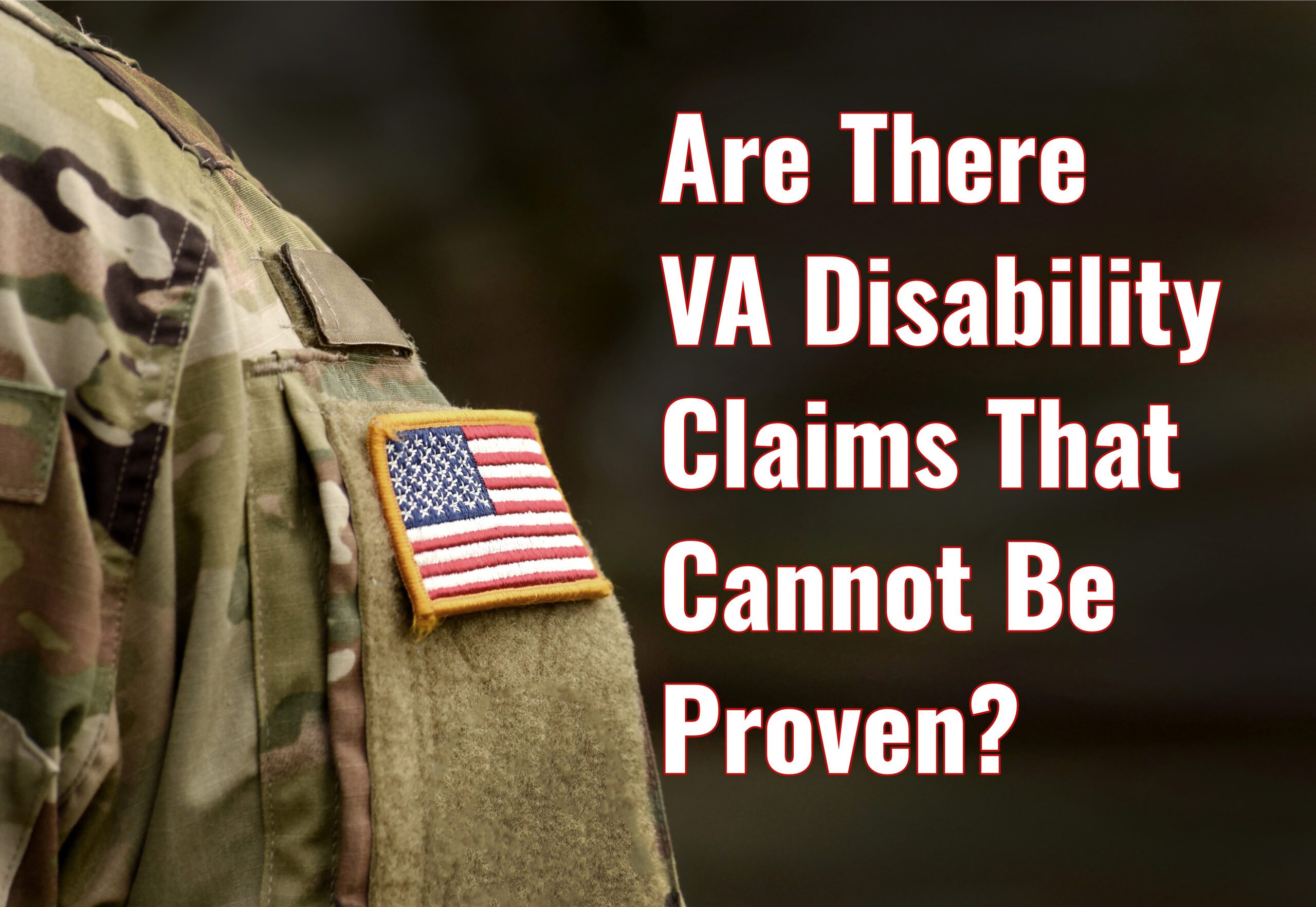Are there VA Disability Claims that Cannot be Proven? How to Avoid Future Denials
Veterans frequently ask, “Are there VA disability claims that cannot be proven?” While the answer is technically no, the reality is more nuanced. A lack of sufficient evidence will almost certainly lead to a claim denial. Understanding the key requirements and strategies for overcoming challenges can make the difference between approval and rejection.

The Importance of Proof
Every VA disability claim rests on a foundation of evidence evaluated against a legal standard: “at least as likely as not.” This standard gives the veteran the benefit of the doubt when the evidence is evenly balanced. To meet this criterion, veterans must demonstrate four critical elements:
- Diagnosis: A current disability must be documented in medical records.
- In-Service Connection: There should be evidence of an event, injury, or illness that occurred during military service.
- Nexus: A medical link must be established between the diagnosed condition and the in-service event or injury.
- Severity: The frequency, duration, and impact of symptoms determine the VA disability rating assigned to the condition.
These four pillars, often referred to as the “VA Claims Insider Golden Circle,” are non-negotiable. Failure to meet any of them will result in a denied claim.
Common Challenges Veterans Face
Certain claims, such as those for tinnitus or mental health conditions, present unique challenges. These conditions are often subjective, relying heavily on veterans’ descriptions of their symptoms, which can be difficult to substantiate without corroborative documentation. Additionally, some veterans face missing medical records—especially those lost in incidents like the 1973 fire at the National Personnel Records Center. Missing evidence can make claims appear unprovable, though alternative approaches may still lead to success.
Strategies for Proving Difficult Claims
While challenges exist, there are actionable strategies veterans can use to strengthen their claims:
- Gather Alternative Evidence: Utilize buddy statements, private medical opinions, and supplementary records to fill gaps in evidence. These alternative sources can substantiate your account and support your claim.
- Leverage Presumptive Conditions: Some conditions, such as illnesses linked to Agent Orange exposure, are presumed to be service-related. These presumptive conditions remove the need for direct evidence of a connection.
- Seek Professional Guidance: VA-accredited representatives or legal experts can help identify missing evidence, streamline the process, and provide support during appeals.
Establishing a robust service connection and maintaining accurate, detailed medical records are critical steps. Veterans should document all medical visits and service-related injuries to build a solid foundation for their claims.
No Claim is Unprovable
Although VA claims may seem daunting, no claim is inherently unprovable. By understanding the essential elements, gathering strong evidence, and seeking expert assistance when needed, veterans can overcome challenges and secure the benefits they deserve.

As the saying goes, “Preparation is the best strategy for success.” With the right approach and determination, veterans can navigate the complexities of the VA claims process and achieve a positive outcome.


Comments are closed, but trackbacks and pingbacks are open.